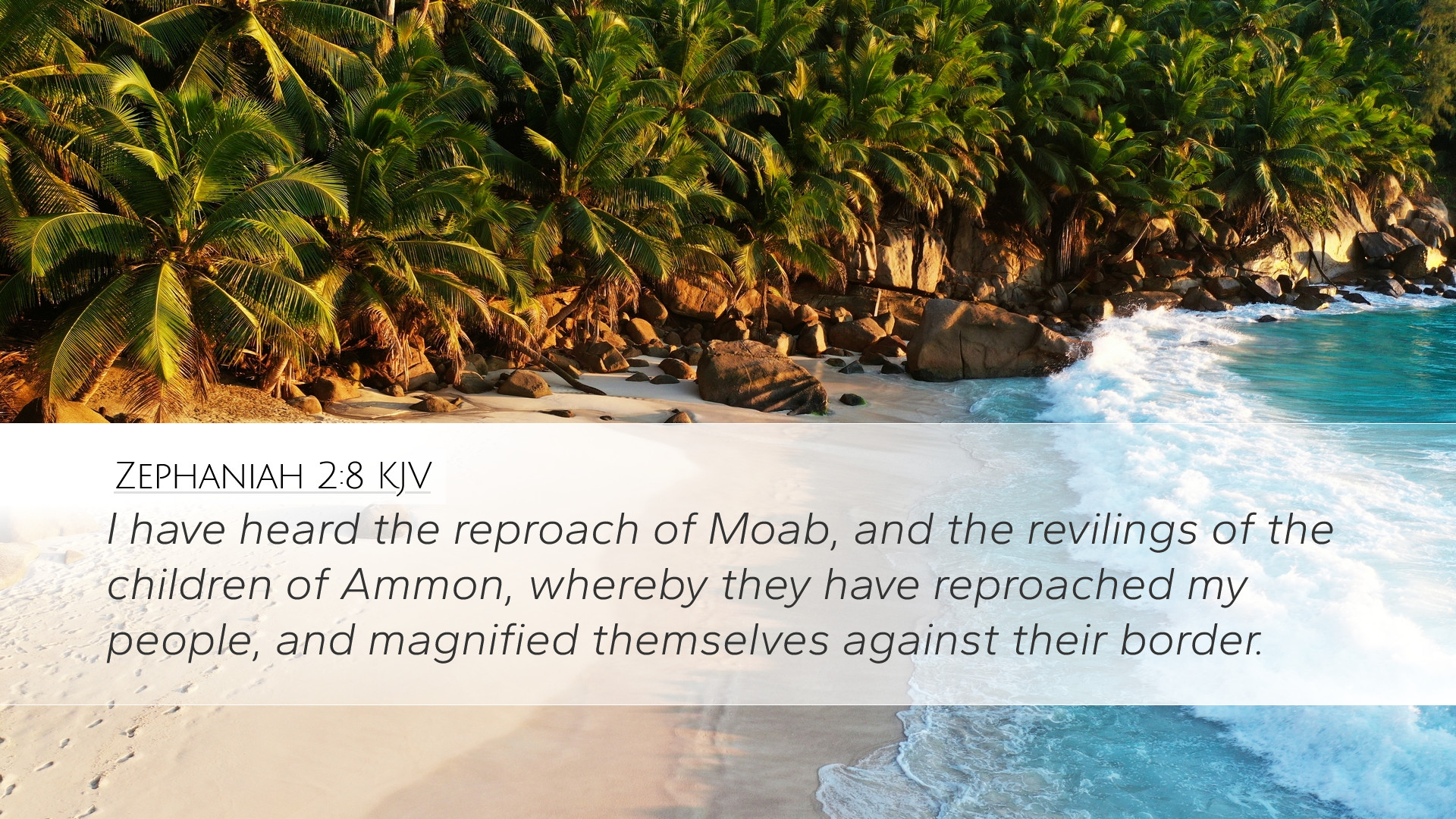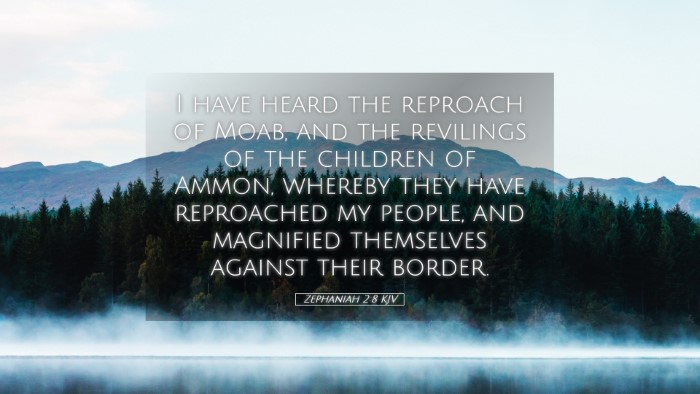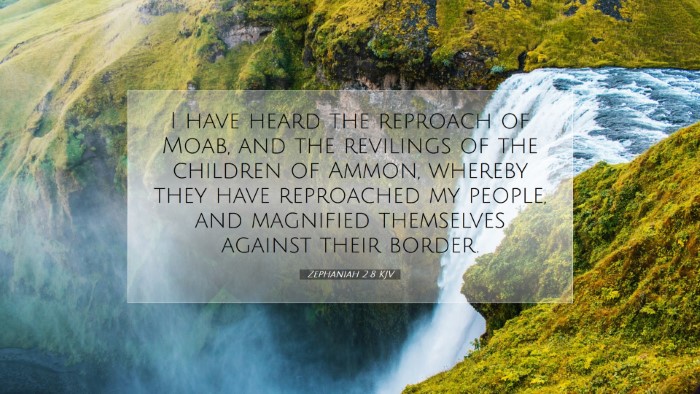Old Testament
Genesis Exodus Leviticus Numbers Deuteronomy Joshua Judges Ruth 1 Samuel 2 Samuel 1 Kings 2 Kings 1 Chronicles 2 Chronicles Ezra Nehemiah Esther Job Psalms Proverbs Ecclesiastes Song of Solomon Isaiah Jeremiah Lamentations Ezekiel Daniel Hosea Joel Amos Obadiah Jonah Micah Nahum Habakkuk Zephaniah Haggai Zechariah MalachiZephaniah 2:8
Zephaniah 2:8 KJV
I have heard the reproach of Moab, and the revilings of the children of Ammon, whereby they have reproached my people, and magnified themselves against their border.
Zephaniah 2:8 Bible Commentary
Commentary on Zephaniah 2:8
Verse Overview: Zephaniah 2:8 states, "I have heard the reproach of Moab, and the revilings of the children of Ammon, whereby they have reproached my people, and multiplied their threats against their borders."
Context of Zephaniah
The book of Zephaniah is situated in the context of the impending judgment upon Judah due to widespread idolatry and moral decay. Zephaniah proclaims the coming day of the Lord, emphasizing both divine judgment and hope for restoration.
Understanding Moab and Ammon
Historical Background: Moab and Ammon are two nations descended from Lot, Abram's nephew. Historically, they were often in conflict with Israel and were known for their animosity and mockery towards the Israelites.
Cultural Context: The reproach of these nations is significant, as it underscores not only their antagonism but also their belief that they could triumph over God's people.
Thematic Analysis
- Divine Awareness: The phrase "I have heard" indicates God's omniscience. God is aware of the reproaches made by Moab and Ammon, confirming that nothing escapes His notice, no matter how remote.
- Reproach and Reviling: The acts of reproach extend beyond mere verbal abuse; they signify a deeper spiritual conflict where foreign nations attempt to undermine the identity and integrity of God's people.
- Threats Against Borders: The mention of "threats against their borders" highlights the physical and spiritual attacks that God’s people face. It serves as a reminder that the covenant community is under constant threat from opposing forces.
Insights from Commentaries
- Matthew Henry: Henry emphasizes the arrogance of Moab and Ammon and their false sense of security. He notes that God hears their taunts and will not allow His people to be mocked forever. This serves as a warning against pride and a reminder of divine justice.
- Albert Barnes: Barnes elaborates on the idea of divine retribution, suggesting that God’s response to the reproach of these nations will be swift and just. He sees this as a pivotal moment where God's concern for His people leads to intervention.
- Adam Clarke: Clarke focuses on the nature of reproach as a weapon against the faithful. He articulates that the revilings are not only a historical moment but reflect a spiritual reality where the church faces scorn. Clarke encourages believers to remain steadfast in faith despite external derision.
Theological Implications
- God’s Sovereignty: This verse reinforces the concept that God is in control of nations and their actions, showcasing His sovereignty over geopolitical affairs.
- Human Reproach vs. Divine Validation: The reproach from Moab and Ammon serves to highlight how external perceptions can affect believers. Yet, this is contrasted by God's assurance of their ultimate vindication.
- Call for Refuge: In light of the reproach, there is an implied call for God’s people to find refuge in Him, as He hears their cry and will defend them against all adversaries.
Practical Applications
- Endurance in Trials: Believers can take comfort knowing that God hears their struggles. Just as He was aware of Moab and Ammon’s taunts, He is aware of contemporary struggles faced by Christians.
- Pursuing Unity: The communal aspect of Zephaniah’s message serves as a reminder for unity among God’s people, encouraging collective faith and resistance against adversarial outside forces.
- Confidence in God’s Justice: The faithful can be reassured that God’s justice will eventually be served. Believers are encouraged to trust in His timing and methods of delivering justice.
Conclusion
Zephaniah 2:8 reveals profound insights into the nature of God's relationship with His people amidst hostility and derision from surrounding nations. This passage encourages reflection on divine protection, promises of vindication, and the importance of faithfulness in adversities. Pastors, theologians, and scholars will find in this verse a rich tapestry of historical significance and theological depth, emphasizing that God is ever-present and will respond to the reproaches of His people with justice and righteousness.


